|
|
|
|
|
|
|
Happy New Year 2024
|
|
2024 promises to bring additional programs.
Paper Bag Ladies of Rochester will continue to focus on assisting those who need to work in identifying interpersonal strengths, mental health goals and general wellness and personal stability.
We offer a variety of online programs as well as in person programs which include open studio art, farming, hiking, and creative writing.
In addition, we have a forest and nature program available for those seeking inner peace and reflection.
All programs are of no cost to participants.
|
|
|
|
Land of Misfit Toys
November 1, 2023 - January 6, 2024
A program where we collect used toys and redistribute to inner-city children in Rochester, NY so they have new adventures.
|
| |
|
Crochet Project
September 2023 - Ongoing
This outreach program provides hats, scraves, gloves and socks that are either new or hand-made which are then distributed to persons in need.
|
|
|
Tribute to an officer Photojournalism Project and Narrative written by Jennifer Wolfley, fall 2006. |
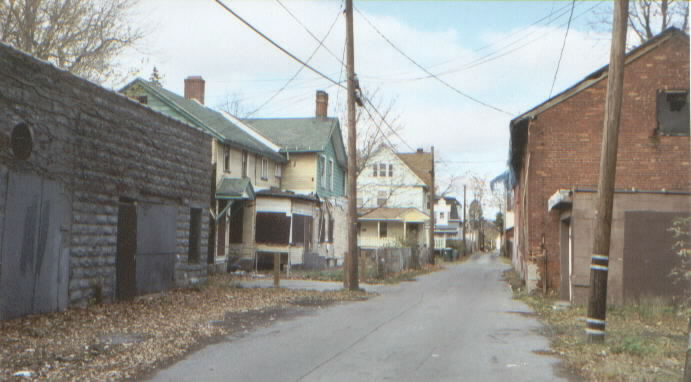
|
From the perspective of a windshield on a warm fall day off Lyell avenue. On outreach with police, in a joint effort to clean up a troubled neighborhood, I saw things I ordinarily don?t see from the main artery, rt. 31. When with police, the covert becomes overt.
I never realized how many people equally look pleased to see police, as well as stare at them from a distance, with loathing. I met one officer, who is what I would call a human services kind of guy with a gun. Police have to be all sorts of things, and have the savvy to know when, to use the skills of a trained and sensitive listener, arbitrator, law enforcer, friend, concerned citizen and somehow, after a long day, and many of them, possess compassion. I worked with such an officer.
|
|
|
From a distance, I thought I was looking at a pile of rubbish, another piece of urban blight and decay. It was explained to me through the windshield that that is the belongings of a resident who at that time was not home. 2006, America, people are still surviving on a bed of leaves, nestled among soiled clothes and possessions heaped among fall foliage. Many forget that this sight is part of all of our America
There is something so perverse about this picture, as it depicts nature among urban sprawl, yet it also shows how we are so consumed with our own lives, that what is relatively evident becomes unclear. My question: how do we allow others to live so nomadic behind the backdrop of a progressive city?
Police see this everyday. Homeless people live this everyday. We continue with our own lives everyday.
I have yet to meet the man or woman who lives underneath this heap of shredded fabric, but I named him Mr. Chicken as I frequently brought him cooked meals and left them by his bedside, so to speak.
I also learned that police know more than public laws, they know something about the neighborhood in which they work. The officer I worked with knew all the meal schedules in the area and knew where to access services and would more often than not give direction to those on the street. This is part of community policing, but also part of being a human being.
|
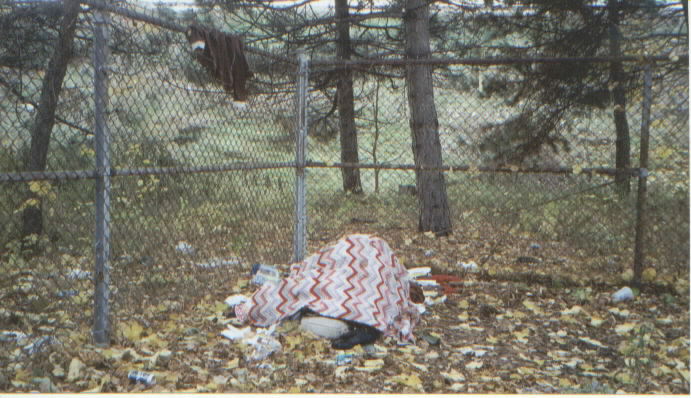
|
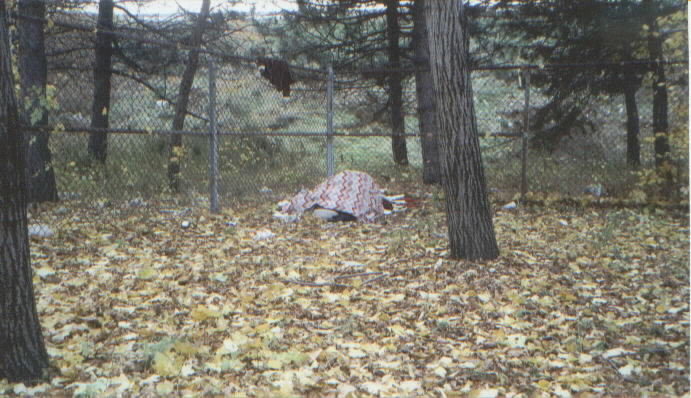
|
|
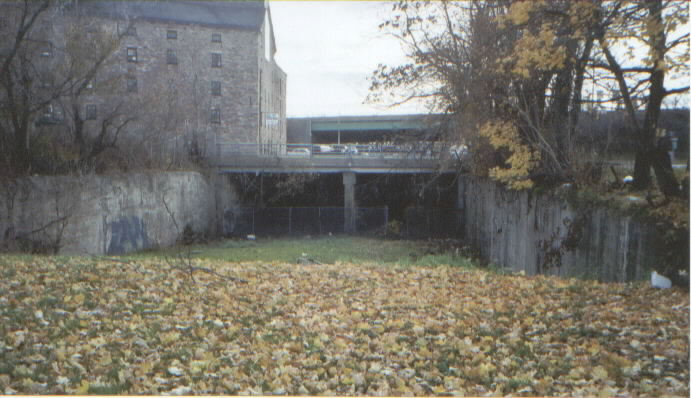
|
Subway bed. I have many clients throughout the years I have had to dig out and unearth, physically, spiritually, and emotionally from the once great Rochester Subway Beds. The Subway, certainly a remnant from Rochester?s great past and history is somehow forgotten by most, but still is a Mecca and beacon of darkness, shelter and safety to the underground. It seems so poetic to refer to it as the underground as a declaration of mass transit, yet when I say underground I mean the subculture that somehow exists among the most dismal of conditions. Rats, an urban tenement as if it is part of some misplaced fancy atrium misplaced among the homeless masses.
|
|
|
I have a client from jail that is currently residing in this shack somewhere parallel to Lyell Avenue. She is in her late 40?s. a constant visitor of the state system, as the jails and prisons, especially in New York State have become the new institutions for those with severe emotional problems, untreated mental illness and those, who just have lost the emotional matrix to stay out of trouble. I was intrigued that there was a computer within the midst of this chaos, as it was almost comical. Seemed pretty third world to me, but on one particular day I went to visit this client and she was a gracious hostess, among this squalid clutter, insisting I sit down on her makeshift couch while I filled out her public assistance forms. It made me think, that no matter where it is, it is still someone?s home.
|
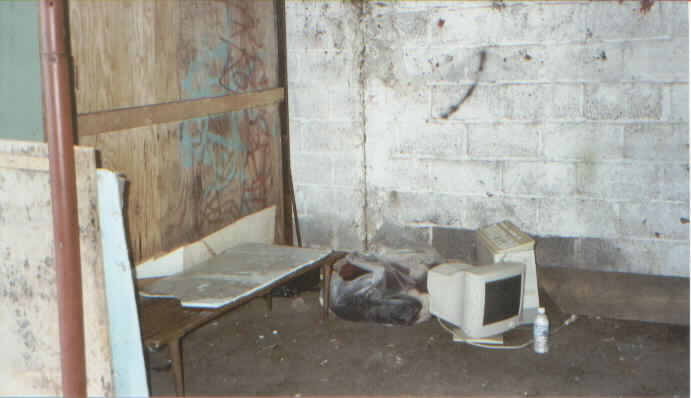
|
|
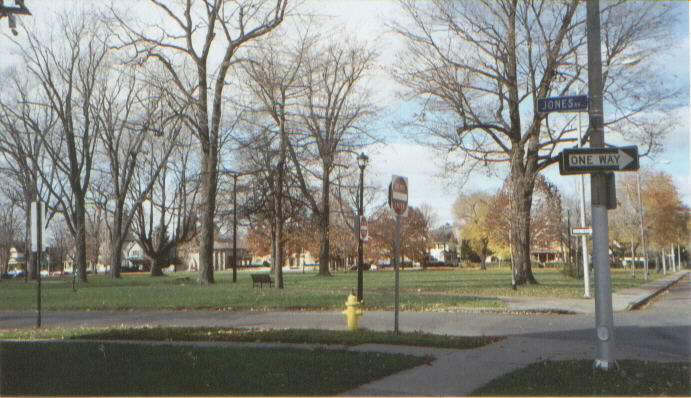
|
In our outreach efforts, myself and the officer frequented this park, Jones Park which is notorious for prostitution and additional minor crimes as prostitution is never alone and often brings a cadre of additional activities. This park reminds me of a small neighborhood park in Brooklyn, New York where I grew up in my early years. One day we noticed a prostitute weaving in and out of consciousness, sort of in a stupor. From a distance it was hard to discern what was taking place, but the officer noticed that there was a man near her, and he was attempting to take advantage of her vulnerable condition. It was all sudden, that this law enforcement officer took a take charge stance, and in 60 seconds coordinated much necessary medical care for her as I wrote referrals and explained housing options. It was surreal. I began to realize what it means to be versatile, and work among conditions that often provide stresses that the average case worker doesn?t contend with in an office with its creature comforts. Police do this everyday.
|
|
|
